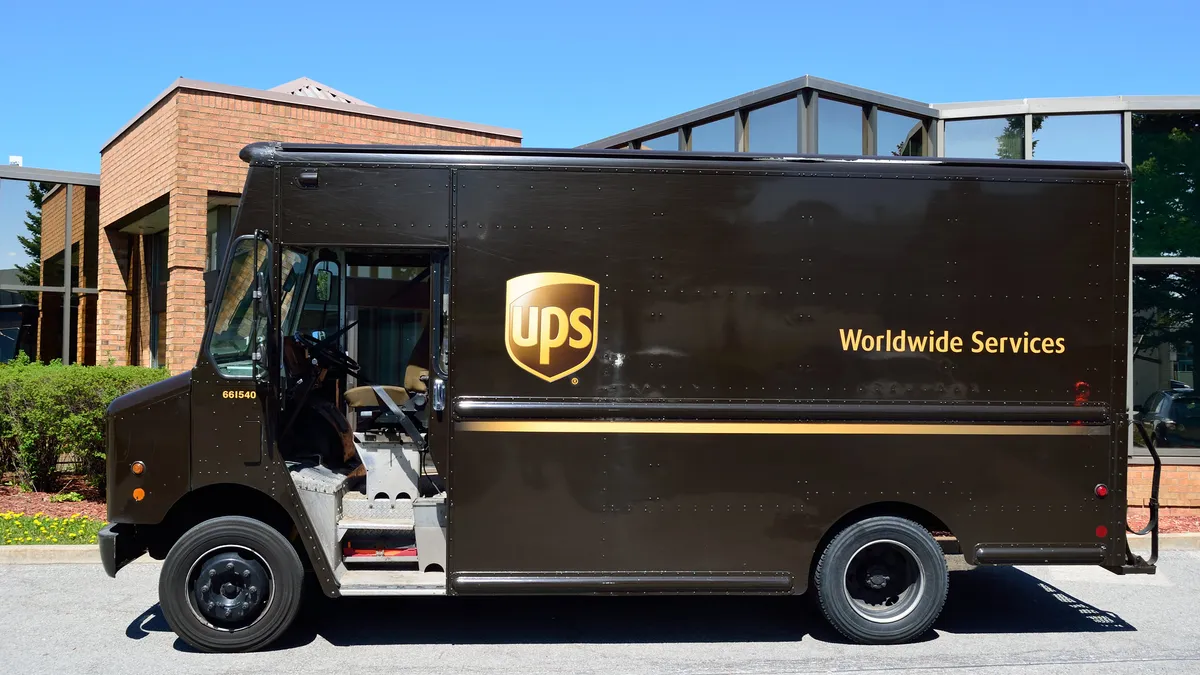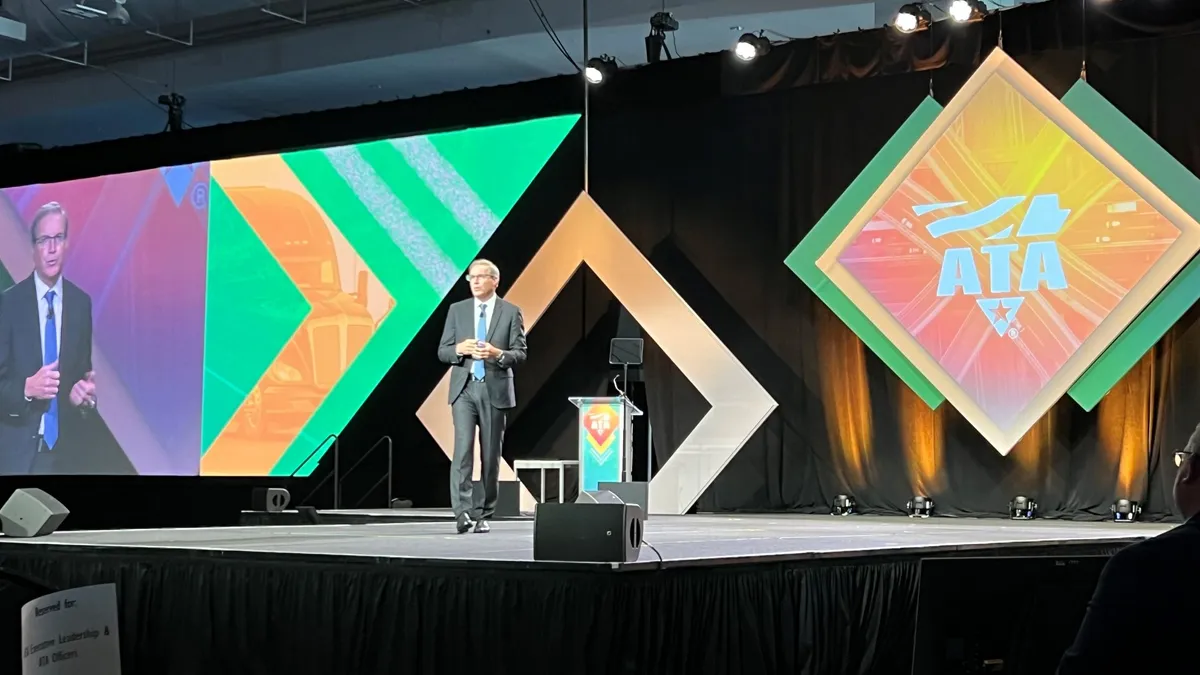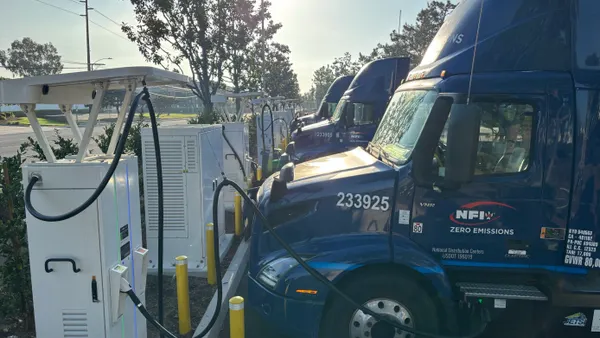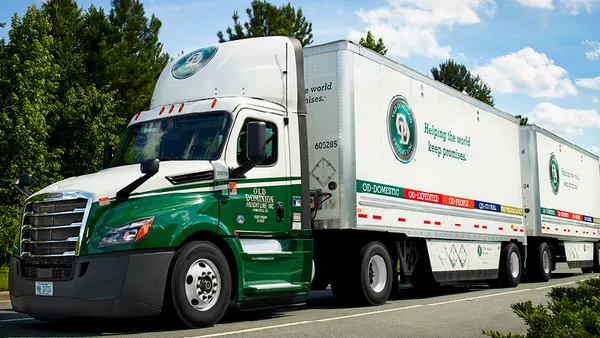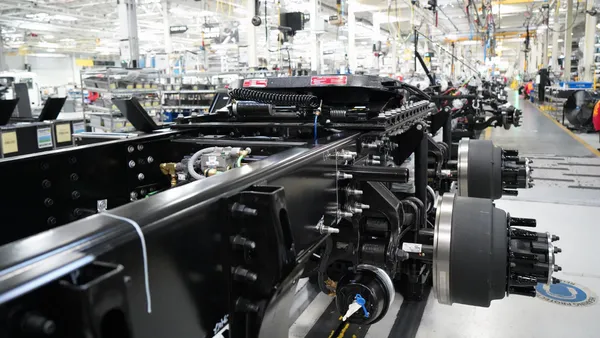Dive Brief:
- The UPS Supply Chain and Freight segment generated operating profit of $158 million in Q1 2020, despite economic headwinds from the coronavirus pandemic, UPS officials said in a Tuesday earnings release. That's down 25.1% from $211 million in Q1 2019. The freight segment lost $10 million, in Q1, as a result of the drag the coronavirus placed on freight demand, according to CFO Brian Newman.
- Toward the end of the quarter, UPS' freight operations and subsidiary Coyote Logistics experienced "depressed volume levels," primarily, but not entirely, from coronavirus-driven mandated stay-at-home restrictions and business closures, UPS officials said. Profits within Freight and Coyote were lower on a year-over-year basis by about $50 million.
- Overall, the Supply Chain and Freight segment's revenue was down less than 1% in Q1, year over year. The company's overall net income was $965 million. But UPS officials girded for a potentially bumpy ride for the remainder of the year, removing $1 billion in capital expenditures from its 2020 plans and withdrawing 2020 guidance, citing the pandemic.
Dive Insight:
UPS saw some financial positives as the quarter progressed and COVID-19 became a smaller factor in Asia, Newman said. International air freight tonnage rebounded in March and was up more than 15%, "primarily on Asia outbound lanes, as the China recovery took hold," he said.
There were other sprinkles of growth in Q1.
Perhaps not surprisingly, Marken, a life sciences supply chain company acquired by UPS in 2016, had double-digit revenue and operating profit growth, Newman said. Marken moves and stores material for clinical trials.
E-commerce grew the most in the United States, when the COVID-19 spread was just beginning to make its way to American shores. U.S. e-commerce volume grew 19% in Q1, year over year. Outside of the United States, e-commerce volume grew almost 12% year over year.
The numbers could indicate freight related to e-commerce will continue to be stimulated through 2020. E-commerce has been a helpful boost to freight and trucking since the advent of e-retailers such as Amazon, and that boost could carry through the pandemic. Kevin Jessop, a marketing official for transportation management firm Cerasis, noted in a March 23 blog post that, "as more people look to avoid public places, the need for e-commerce freight shipping in 2020 will only grow, and with the uncertainty surrounding coronavirus, heavier freight will need to become more synonymous with e-commerce capabilities too."
But positive signs in Asia have not idled UPS planners, just in case the economic downturn is deeper or longer than expected. UPS cut capital expenditures. And it will suspend stock buybacks to save another $800 million.
Outgoing CEO David Abney made note of the unprecedented market volatility caused by the coronavirus.
"Over my 46-year career at UPS, I have never seen the level of demand variability in the markets we serve and among our customers that we are now experiencing," Abney said on his final earnings call before passing the baton to former Home Depot CFO Carol Tomé on June 1.


